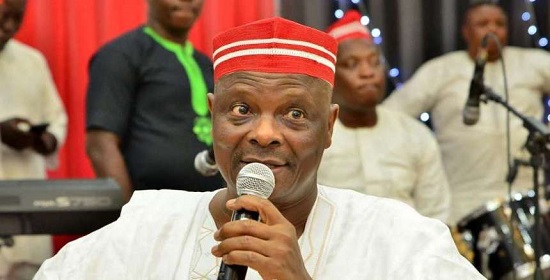Former Kano State Governor, Rabiu Kwankwaso, yesterday revealed how he disposed of his personal property to raise fund to sponsor 370 students on post-graduate scholarship programme abroad under Kwankwasiyya Foundation.
Kwankwaso, who revealed this at the weekend while receiving beneficiaries of the scholarship from India and Dubai at Mallam Aminu Kano International Airport, (MAKIA), expressed satisfaction in the activities of the foundation.
The former Minister of Defence explained that when he conceived the idea of sponsoring students to foreign universities for post-graduate studies, he was convinced to pull out resources at all costs, which compelled him to sell his personal property.
Kwankwaso stressed that the 370 beneficiaries were offered full scholarship in India and Dubai, including airfare, accommodation and living expenses throughout their two-year academic sojourn.
“My passion for education has no boundary. I went to the extent of selling some of my property to ensure the take-off of this foreign scholarship initiative under the auspices of Kwankwasiyya Development Foundation.
“This evening, I received with pleasure the arrival of 370 foreign scholarship beneficiaries for post-graduate studies from various universities in india, Dubai and Sudan.”
This is a day to remember, a very historic day, as our dream comes true. I am delighted to welcome you home. I am so grateful that many of you have passed with outstanding results,” Kwankwaso said.
Leader of the beneficiaries, Yusuf Dala, appreciated Kwankwaso, who initiated the gesture and accorded the younger generation a life-changing opportunity to study various courses at post-graduate level in topnotch universities abroad.
The 370 students, all from Kano, departed Nigeria for India and Dubai in September 2019 under the sponsorship of Kwankwasiyya Development Foundation, a charity organisation founded by the former fovernor and senator representing Kano Central.
During his second tenure as governor, he initiated the state government-funded foreign and local scholarship and about 2,500 Kano indigenes benefited.



